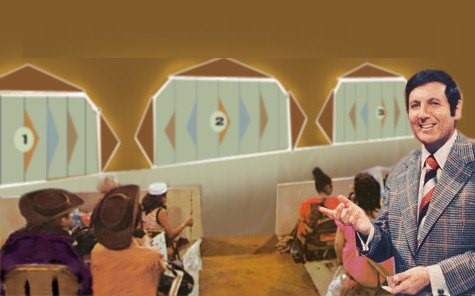
It’s your ultimate game show fantasy.
You’re the last contestant standing with Monty Hall on the original Let’s Make a Deal.
Aside from the fact you’re dressed in an outfit that will embarrass your grandchildren when they watch the reruns years later, you now have a choice that could potentially yield significant rewards: Do you want what’s behind Door #1, Door #2, or Door #3?
Everybody knows there’s a car behind one of those doors. The other two doors are hiding what the producers of the show called Zonks: maybe a chimpanzee riding a scooter or 50 pounds of eggplant.
What are the odds you will choose the car? That’s pretty easy: One in three.
But Monty Hall loves to turn up the drama. Do you want to stick to your guns, or would you rather exchange the door you chose for what Jay has in the box? Of course, Jay may have nothing more than a Zonk-in-the-Box. You cross your fingers and decide to hang on to your door.
That’s when Monty says, “Let’s see what’s behind one of the doors you didn’t choose.” And he reveals one of the Zonks.
Then he turns to you and asks those fateful words: “So, do you want to stick with your original choice, or would you like to switch doors?” The crowd is going bonkers, screaming this and screaming that.
What should you do? That very question was presented a few years ago to hundreds of mathematicians.
Almost all of them gave the wrong answer.
The mathematicians focused on the fact that one of the doors has the car, while the other doesn’t. Your odds of being right are 50-50. So what you decide to do doesn’t really matter, does it? Someone in your position will get the car exactly half the time.
“That’s an attractive view,” says William Goldbloom Bloch, professor of mathematics at Wheaton College in Massachusetts. “But it’s the wrong view.”
Bloch points out that according to game theory, you should always switch doors. That’s because switching doors gives you a two-thirds probability of winning.
First, ignore all the distractions, like your screaming family members in the front row and the wad of $100 bills Monty is now trying to foist upon you, essentially to buy your vote. Then review the numbers.
When the game began you had a one-third chance to pick the right door. There was a two-thirds chance you had blown it. The only time that switching is wrong would be if you had picked the correct door from the beginning. Again, what were the odds of that? One-third. Now that you’ve seen one of the Zonks, that door has been eliminated. The history of Let’s Make a Deal reveals that two-thirds of the time – not 50-50 – contestants who decide to switch doors will get the car.
It’s decidedly counter-intuitive, and Professor Bloch sighs that so many mathematicians missed it. But as they say in the world of sports reporting, the numbers never lie.
Maybe you will never stand on a game show stage within reach of a new BMW or a big foam check made out to you for a million dollars. No mind. You’re playing, right now, for much higher stakes.
Here’s what God said to the Israelites as they stood on the frontier of the Promised Land: “See, I set before you today life and prosperity, death and destruction… Now choose life, so that you and your children may live and that you may love the Lord your God, listen to his voice, and hold fast to him. For the Lord is your life!” (Deuteronomy 30:15, 19-20)
Ignore all the distractions. Make the right choice.
You can choose bitterness.
Or ambition.
Or having a lot of stuff.
Or getting your own way.
Or you can choose Life.
That’s the real grand prize.
